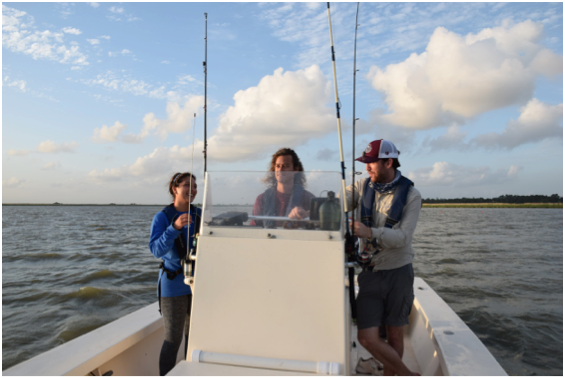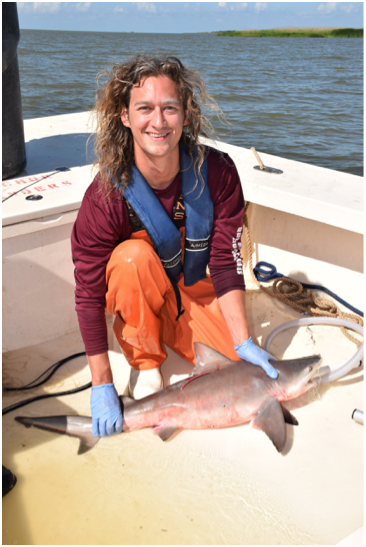Student Spotlight: Tom Tinhan, Ph.D. Student
Tom Tinhan, a PhD student in the Marine Biology Department at Texas A&M University at Galveston, began his higher education career with an undergraduate degree in Marine Biology from the University of Hawaii. After a year of working as a fieldwork assistant at Hawai'i Institute of Marine Biology’s Shark Lab, and researching graduate school, Tom returned to school and completed an M.S. in Marine Biology at California State University. His thesis focused on the long-term movement patterns of Yellow Snapper (Lutjanus argentiventris) and Leopard Grouper (Mycteroperca rosacea) at Los Islotes Reserve, Gulf of California.
The opportunity to work with Dr. Wells in the Shark Biology and Fisheries Science Lab and learn more about the biology and ecology of sharks and bony fishes were among the deciding factors that led Tom to choose Texas A&M University at Galveston for his PhD program, along with the funding opportunities and multiple in-house lab collaborations.
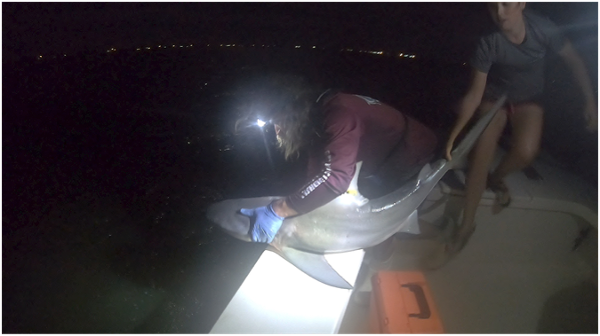
Tom Tinhan conducting research in sharks.
Currently, Tom’s area of focus is on the early life history of bull sharks, as well as their population levels, habitat use, and feeding ecology. This semester Tom was awarded the Texas A&M University at Galveston Boost Fellowship, which is allowing him to focus on writing his dissertation. In the past, the University has supported Tom through diverse graduate assistantships, and mini grants, showing the University’s commitment to support its graduate students. He also worked as a teaching assistant for the MARB 311 course, Ichthyology, and was also awarded the Erma Lee and Luke Mooney Graduate Student Travel Grant and the MARB mini grant that help fund his travel expenses.
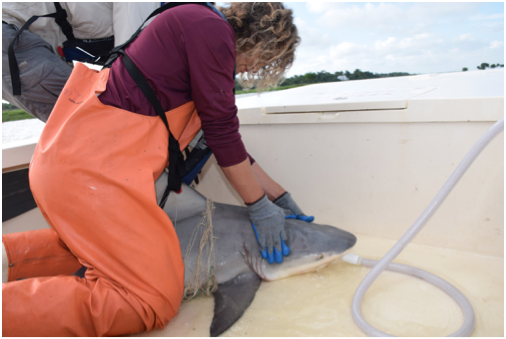
During Tom’s time at Texas A&M Galveston, he was able to travel to multiple places for conferences, field work, and boat trips. Additionally, he has been to conferences in Austin, New Jersey, Taiwan, and Hawaii. In Taiwan, he attended the International Otolith Symposium where he presented on shark vertebrates. Tom has also participated in many offshore sampling trips in Louisiana and in Matagorda Bay.
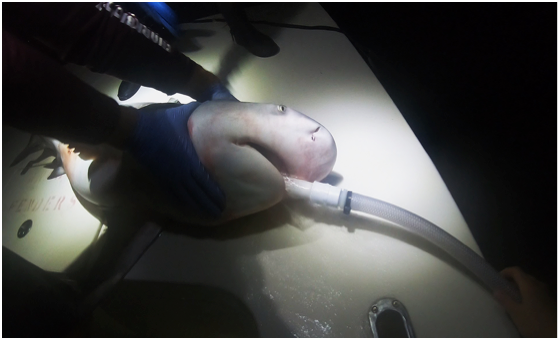
His greatest motivation for pursuing a PhD in his field is to become a professor, and continue researching on the movement and feeding methods of sharks in the future. Tom loves learning and being in school; he is also considering taking up a postdoc once he graduates. For students, especially those who are interested in pursuing research, Tom has four pieces of advice: (1) Do not be afraid of taking a year off to work and figure out what and where you want to study. (2) Get started as early as you can even as an undergraduate student; professors will acknowledge your work ethic. Building relationships is a great skill. (3) Remember that it is hard to find the one thing you want to do for the rest of your career, but it is easier to find the things you do not want to do. (4) Don’t get fixated. Think through your research goals and focus on learning science.
